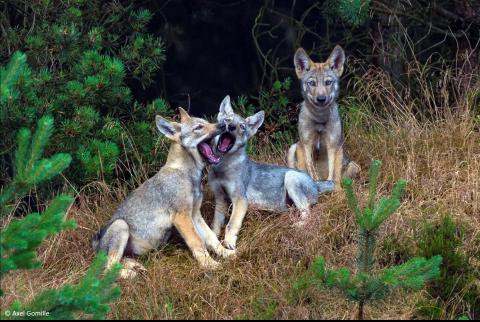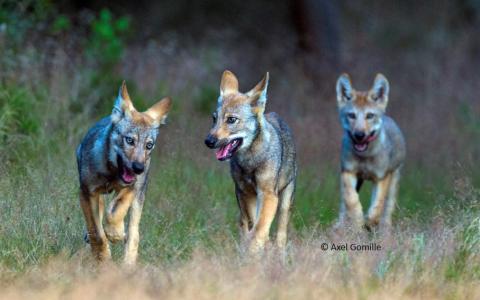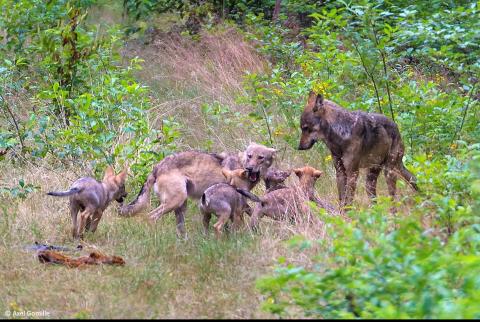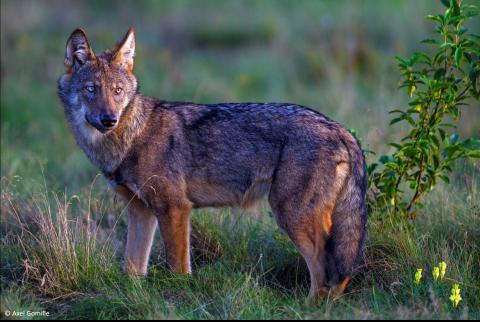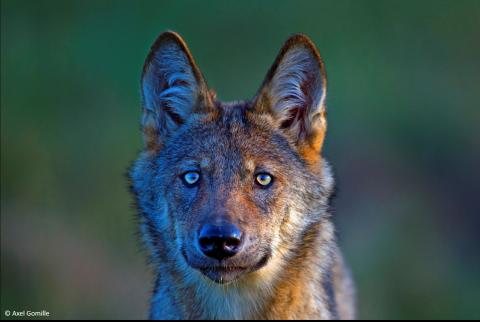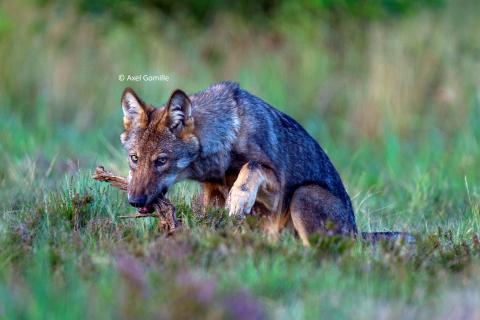
A new study explores the emotional states caused by the presence of wolves
Wolves (Canis lupus) have made a remarkable come-back in European landscapes and have been naturally recolonising France since 1992. Their reappearance has not gone unnoticed, causing sometimes very heated conservation debates among local communities. A recent study led by a researcher from the Ecology, Systematics and Evolution Laboratory (ESE - Univ. Paris-Saclay/CNRS/AgroParisTech) has looked at the emotions caused by the coexistence of wolves and human populations. The study has just been published in the journal, People and Nature (link).
Having long been absent from French natural landscapes, wolves started to reappear in France in the 1990s. While their come-back is good news for biodiversity, coexistence between these large carnivores and local inhabitants has proven problematic, owing to damages caused to livestock. The slightest of incidents can cause heated debate, which can in turn influence public opinion and political decisions. As the question of the emotional impact of wolf-human cohabitation had until recently not been the focus of major research, Ugo Arbieu, a postdoctoral researcher at the Ecology, Systematics and Evolution Laboratory (ESE - Univ. Paris-Saclay/CNRS/AgroParisTech), and an international team of scientists, undertook that very task.
Emotions are short, intuitive mental processes which can influence attitudes (positive or negative evaluations of objects, e.g. wolves ), and are involved in decision-making processes. In the context of human-wildlife coexistence, studies have mainly focused on emotional dispositions (i.e. people’s decontextualised, stable tendencies to react in a certain way towards wildlife), in contrast to emotional states (i.e. quick reactions elicited in specific contexts) which have been overlooked. This has limited our understanding of emotional states and the role of emotional diversity in shaping attitudes towards wildlife species; a gap which this recent study led by an international research team has helped to overcome.
The researchers looked at the range of emotions expressed by inhabitants of rural regions in France in context-specific wolf encounters. They randomly selected 24 towns and villages in areas where wolves were either absent or present, and conducted a social survey with inhabitants.
The team investigated the range of emotions expressed in reaction to short video clips, depicting six different types of encounters, such as seeing a wolf on a hiking path, a pack of wolves on the road, or a wolf roaming around a cattle enclosure.
The study showed that the most frequently expressed emotions were, in order: surprise, interest and fear. This highlights that even in French rural landscapes undergoing a process of dynamic recolonisation over the past three decades, negative and hostile emotions were not preponderant and people did not expect to encounter wolves in the wild. Analysed together, the vast range of emotions expressed, which varied in intensity depending on the context of the encounter, did not depict a particularly hostile atmosphere towards wolves in French rural landscapes. Anger, a reaction which is often associated with public debate on wolf conservation, was not strongly linked to wolves themselves, but rather to human conflicts over wolf management, demonstrating the need to address perceived injustices and potential threats to livestock.
In conclusion, as emotions are powerful drivers of decision-making in wildlife conservation, the researchers suggest a paradigm shift to not only mitigate the irrational fear of these animals (wolf attacks to humans are almost inexistant in Europe) which is sometimes encouraged by generally negative depictions in the media, but also to promote positive emotions such as joy and interest for wolves to reflect the actual costs and potential benefits of sharing landscapes with recolonising carnivores.

